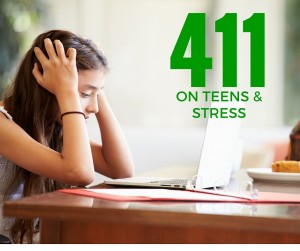
Wouldn’t it be nice if parents could control everything about their children! You know, just for a little while, say maybe until they’re 30. But, of course, that’s not the way life works.
Growing up means learning to be more independent, to take responsibility and, sometimes, to even make mistakes.
While we want to protect our children, it’s also important that we give them room to grow and develop. One of the hardest places to give kids space is when you sometimes see the effects that peer pressure can have on your son or daughter. During the teen years the opinions and actions of their friends often count more than Mom’s or Dad’s opinions and advice. It’s easy to understand. The teenage years are a period of uncertainty. Bodies are changing, interests are changing, and they’re beginning to see the adult world just over the horizon.
Many kids feel insecure and lacking in confidence at these times. Others have a “fake it ‘til you make it” attitude! There’s comfort in being accepted, in “fitting in,” and giving in to peer pressure.
Does that mean that we parents are helpless? Not necessarily. The key is to recognize the pressures your teen is facing. A starting point is opening up more communication with your teen. While difficult, it can happen when you show you’re genuinely interested in your teen’s life. Try questions that give your teen a chance to talk about what he or she is doing and feeling.
Find a time when you are both relaxed – during dinner, while driving to football practice or during a walk with the dog. Be gentle but persistent.
Here are a few suggestions –
Also, consider these final thoughts: Limit criticism and try to find positive things to praise. Helping build your teen’s self-confidence and positive self-image goes a long way in fighting negative peer pressure.
Avoiding absolutes also helps. It almost never works to “forbid” certain friends. But you can try setting limits on the amount of time spent with them and require it be in supervised settings.
Building a stronger family relationship is also important. Curfews should be made and stuck to. Homework and family chores need to be done. Make dinner hours a family activity and find quiet time to sit down and really talk with one another. Not all peer pressure is negative, but as a parent you want to try and help your child learn how to evaluate friendships and the things that influence him or her as a person.
Building a closer, positive relationship goes a long way in making that happen.
Be WISE!

Some Wise Family resources:
http://www.apa.org/helpcenter/stress-teens.aspx
http://www.jhsph.edu/research/centers-and-institutes/center-for-adolescent-
health/_includes/Teen_Stress_Standalone.pdf
Portions of the feature article courtesy of the American Counseling Association:
“This is my 1st visit at WISE with my son. So far I am very thankful and impressed by the space. I feel light and comfortable here while my son works on his growth. I appreciate that you curated the process well.” ~ WISE Family parent
— Thankful and impressed by the space“Dr. Amy is like Oprah – she’s the neighbor you love who is very, very smart”
— Parent of 14-year-old son and 18-year-old daughter“I went home and practiced what Dr. Amy taught me…and it worked!”
— 8-year-old coaching client“Thank you so much for all you do and care for me. And all the work you do for my family. I {heart} you.”
— 10-year-old coaching client